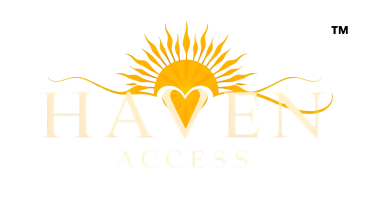I am a 32 year old single father of two wonderful children, and I was an opiate addict for 15 years. They were the hardest years of my life and left me with crippling anxiety and depression. I was a functioning addict for many of those years, able to keep a 3.8 GPA in high school which earned me a spot in the National Honor Society and I had plans to become a writer and a professor. My dream was to share my love for history, literature, and poetry with my students in the classroom and people all over the globe through my writing.
I grew up in Southwest Virginia which, as many of you know, was ground zero for the opiate epidemic in this country. I tried OxyContin for the first time at 14 years old and was quickly hooked, as were almost all of my close friends. We were operating in a world which we were far too young to comprehend the profound danger we were in. To the people around me I was a successful and bright student with a world full of possibility within my grasp. But inside I was quickly becoming a hopeless addict whose main agenda was to find my next fix.
I graduated high school and was accepted to multiple universities and colleges, enrolling at Old Dominion University, and it was here that my life quickly began to unravel. Drugs became my sole priority, people that I knew and loved started to die or go to jail. I withdrew from school and transferred to a college closer to home, but this only made things worse because opiates were everywhere in the Roanoke Valley. Heroin and fentanyl started to emerge on the scene around this time and the government had cracked down on prescription opiates, so I quickly transitioned into a full-time heroin addict.
Over the course of the next ten years I would overdose around 7 times, crash multiple vehicles, and go to jail multiple times. I also started to try and get clean around this time; I just knew I had enough and didn’t want to die like so many of my friends and acquaintances. I tried inpatient programs, suboxone, and methadone programs, all of which failed; I always ended up using again.
I started using kratom around this time and finally found something that allowed me to live a fairly normal life, although I had become overwhelmed with anxiety and depression due to years of opiate use. My mind felt like my greatest enemy, which was incredibly disheartening because my mind had always been my great escape—the intellect which had provided me with so many opportunities as a young man had turned against me, filling me with depression, regret, and an inescapable anxiety which made each and every day a waking nightmare.
My family wasn’t enough, my beautiful children weren’t enough; I was living in a world of dull black and white, all the vibrant color of life had faded away. I would always make it six months or a year or two with kratom, but would inevitably relapse, burning whatever progress I had made to the ground.
It was during a relapse last year that I became aware of 7-hydroxymitragynine. I decided to try some and it has been one of the best decisions of my entire adult life. I am able to function each day without all the depression and anxiety, able to live a life without the constant craving in the back of my mind for opiates. 7-OH has been a miracle for me, and for my family. I am that happy-go-lucky young man again, full of life and wonder at the world. Motivated to chase my dreams again for the first time in over a decade. My love for life has been restored.
I’m writing again, pursuing my hobbies and passions again, living a productive, healthy lifestyle. I have regained my life and sense of self. All these things seemed unimaginable just a few short years ago. How could something that has had such a positive impact on so many people be a bad thing?
7-OH may not be for everyone, and that’s fine, which is why education is so important, but for people like me, whose lives were destroyed by opiates, 7-OH and kratom offer a crucial, life-saving alternative which has the potential for harm reduction like we have never seen. How many more hundreds of thousands of lives need to end needlessly before we recognize alternatives like these are not just important—they are essential.
